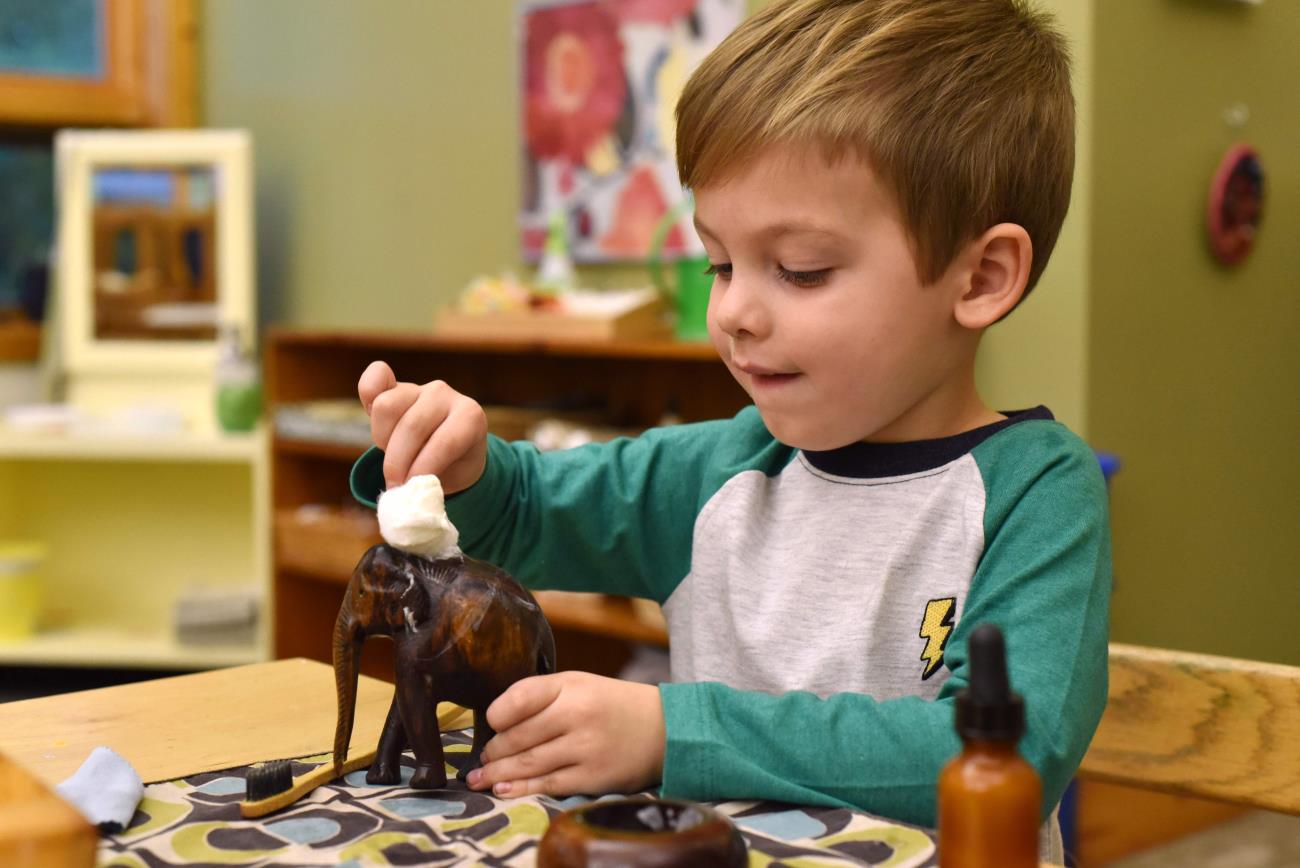Being an educator for the past 27 years at The Children's House has taught me a lot about children, parents, and the influence of our changing world on education. First, I want to reflect on the positive changes I have witnessed. Parents are much more involved in their child's education. They are taking more of a stand in what they want for their child educationally. There are more choices out there and parents want to give their child what is best to serve them as a whole. Secondly, children seem to know more about the world around them globally. They have a desire to preserve what will be their world in the future. Not only in the simple ways of recognizing the preservation of our water in their daily lives but also in ways that will affect the earth as a whole. Children have also become much more aware of the choices available for their future. They have dreams for themselves and know there are no limits to what they want to be. The opportunities that await them are limitless. They are also more in tune with their rights and strive to fight for equality and fairness to protect themselves and others around them.
With the changes I have witnessed in these years, I also feel the need to share some negative developments that directly affect many parents these days. Many parents are afraid to say “no” to their children and do not allow them to work through challenging moments. Some parents have a hard time watching their children be sad or struggle. As parents, we need to set limits, be consistent, and follow through. I want to stress to you the importance of allowing your child to struggle through these challenging times. Young children know that they don't know everything about the world or how to take care of themselves, but they believe that you do. Being assertive will reassure them that you do, and will make them feel safe. Not setting boundaries can lead to an unhappy child who doesn't know how to cope with difficult feelings which is an essential life skill. By setting limits on what they can or cannot do you are giving your child a chance to practice managing their emotions. Let your child make mistakes and allow them to work through hard moments. This is important for them to gain knowledge, get through difficult moments in their life, and feel more confident. Teach them to be strong and to become problem solvers. But just like failure, embracing uncomfortable moments can boost mental strength.
Another important point I want to touch on is the effect technology has on our children. I have watched children lose interest in school, struggle with focusing on school academics, give up on hard things too quickly and as they get older are challenged with developing social skills in their relationships. The CDC (Center for Disease Control and Prevention) advises parents to not give any screen time to children under the age of two. The CDC asks parents to remove screens from a child’s bedroom and limit screen time to 1-2 hours daily for children between the ages of 8 and 14. Dr. Maria Montessori believed that our intellect and knowledge of the world have their beginnings in the senses. As human beings we are all sensory-absorbing our knowledge about the world through seeing, hearing, touching, smelling, and tasting around us. As technology is important for inquiring information about the world, let this be a resource to them when they can make sense of the real world around them first before introducing this as a research source. Encourage them to find this information through reading books or through hands-on experiences. Screens do not ask our children to exert themselves. When your child is asked to use their brain and challenge themselves, it becomes too much work for them and they struggle with focusing.
We live in an increasingly stressful world, which is why it has never been more important to foster emotional and mental resilience in our children. Not only are mentally strong children better prepared to tackle future problems on their own, but studies have found that they're also more likely to be engaged in school and their future jobs. Stimulating the senses helps with a child's creativity and imagination, it allows children to regulate, and develop motor and social skills with peers such as cooperation and turn-taking, and teaches self-expression. Give your children the gift of learning through their senses.
I am grateful to have had these years with all of the students and their families. I have learned so much through all of my experiences. I continue to have passion for my work and the future of our children. It's a wonderful thing to have past students who are now parents in my classroom. It's the beauty of witnessing this full circle of education.
“Education is a natural process carried out by the child and is not acquired by listening to words but by experiences in the environment.” – Dr. Maria Montessori
